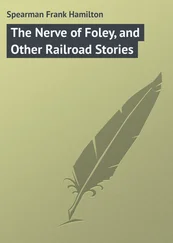Pelham Wodehouse - The Politeness of Princes and Other School Stories
Здесь есть возможность читать онлайн «Pelham Wodehouse - The Politeness of Princes and Other School Stories» весь текст электронной книги совершенно бесплатно (целиком полную версию без сокращений). В некоторых случаях можно слушать аудио, скачать через торрент в формате fb2 и присутствует краткое содержание. Жанр: Классическая проза, на английском языке. Описание произведения, (предисловие) а так же отзывы посетителей доступны на портале библиотеки ЛибКат.
- Название:The Politeness of Princes and Other School Stories
- Автор:
- Жанр:
- Год:неизвестен
- ISBN:нет данных
- Рейтинг книги:3 / 5. Голосов: 1
-
Избранное:Добавить в избранное
- Отзывы:
-
Ваша оценка:
- 60
- 1
- 2
- 3
- 4
- 5
The Politeness of Princes and Other School Stories: краткое содержание, описание и аннотация
Предлагаем к чтению аннотацию, описание, краткое содержание или предисловие (зависит от того, что написал сам автор книги «The Politeness of Princes and Other School Stories»). Если вы не нашли необходимую информацию о книге — напишите в комментариях, мы постараемся отыскать её.
The Politeness of Princes and Other School Stories — читать онлайн бесплатно полную книгу (весь текст) целиком
Ниже представлен текст книги, разбитый по страницам. Система сохранения места последней прочитанной страницы, позволяет с удобством читать онлайн бесплатно книгу «The Politeness of Princes and Other School Stories», без необходимости каждый раз заново искать на чём Вы остановились. Поставьте закладку, и сможете в любой момент перейти на страницу, на которой закончили чтение.
Интервал:
Закладка:
"How are you getting on round your way?" asked Linton of Dunstable at the end of the sixth week of term.
"Ripping. Selling like hot cakes."
"So are mine," said Linton. "I've almost come to the end of my stock. I ought to have written some more, but I've been a bit slack lately."
"Yes, buck up. We must keep a lot in hand."
"I say, did you hear that about Merrett in our house?" asked Linton.
"What about him?"
"Why, he tried to start a rival show. Wrote a prospectus and everything. But it didn't catch on a bit. The only chap who bought any of his lines was young Shoeblossom. He wanted a couple of hundred for Appleby. Appleby was on to them like bricks. Spotted Shoeblossom hadn't written them, and asked who had. He wouldn't say, so he got them doubled. Everyone in the house is jolly sick with Merrett. They think he ought to have owned up."
"Did that smash up Merrett's show? Is he going to turn out any more?"
"Rather not. Who'd buy 'em?"
It would have been better for the Lines Supplying Trust if Merrett had not received this crushing blow and had been allowed to carry on a rival business on legitimate lines. Locksley was conservative in its habits, and would probably have continued to support the old firm.
As it was, the baffled Merrett, a youth of vindictive nature, brooded over his defeat, and presently hit upon a scheme whereby things might be levelled up.
One afternoon, shortly before lock-up, Dunstable was surprised by the advent of Linton to his study in a bruised and dishevelled condition. One of his expressive eyes was closed and blackened. He also wore what is known in ring circles as a thick ear.
"What on earth's up?" inquired Dunstable, amazed at these phenomena. "Have you been scrapping?"
"Yes—Merrett—I won. What are you up to—writing lines? You may as well save yourself the trouble. They won't be any good." Dunstable stared.
"The Trust's bust," said Linton.
He never wasted words in moments of emotion.
"What!"
"'Bust' was what I said. That beast Merrett gave the show away."
"What did he do? Surely he didn't tell a master?"
"Well, he did the next thing to it. He hauled out that prospectus, and started reading it in form. I watched him do it. He kept it under the desk and made a foul row, laughing over it. Appleby couldn't help spotting him. Of course, he told him to bring him what he was reading. Up went Merrett with the prospectus."
"Was Appleby sick?"
"I don't believe he was, really. At least, he laughed when he read the thing. But he hauled me up after school and gave me a long jaw, and made me take all the lines I'd got to his house. He burnt them. I had it out with Merrett just now. He swears he didn't mean to get the thing spotted, but I knew he did."
"Where did you scrag him!"
"In the dormitory. He chucked it after the third round."
There was a knock at the door.
"Come in," shouted Dunstable.
Buxton appeared, a member of Appleby's house.
"Oh, Dunstable, Appleby wants to see you."
"All right," said Dunstable wearily.
Mr. Appleby was in facetious mood. He chaffed Dunstable genially about his prospectus, and admitted that it had amused him. Dunstable smiled without enjoyment. It was a good thing, perhaps, that Mr. Appleby saw the humorous rather than the lawless side of the Trust; but all the quips in the world could not save that institution from ruin.
Presently Mr. Appleby's manner changed. "I am a funny dog, I know," he seemed to say; "but duty is duty, and must be done."
"How many lines have you at your house, Dunstable?" he asked.
"About eight hundred, sir."
"Then you had better write me eight hundred lines, and show them up to me in this room at—shall we say at ten minutes to five? It is now a quarter to, so that you will have plenty of time."
Dunstable went, and returned five minutes later, bearing an armful of manuscript.
"I don't think I shall need to count them," said Mr. Appleby. "Kindly take them in batches of ten sheets, and tear them in half, Dunstable."
"Yes, sir."
The last sheet fluttered in two sections into the surfeited waste-paper basket.
"It's an awful waste, sir," said Dunstable regretfully.
Mr. Appleby beamed.
"We must, however," he said, "always endeavour to look on the bright side, Dunstable. The writing of these eight hundred lines will have given you a fine grip of the rhythm of Virgil, the splendid prose of Victor Hugo, and the unstudied majesty of the Greek Numerals. Good-night, Dunstable."
"Good-night, sir," said the President of the Locksley Lines Supplying Trust, Ltd.
THE AUTOGRAPH HUNTERS
Dunstable had his reasons for wishing to obtain Mr. Montagu Watson's autograph, but admiration for that gentleman's novels was not one of them.
It was nothing to him that critics considered Mr. Watson one of the most remarkable figures in English literature since Scott. If you had told him of this, he would merely have wondered in his coarse, material way how much Mr. Watson gave the critics for saying so. To the reviewer of the Weekly Booklover the great man's latest effort, "The Soul of Anthony Carrington" (Popgood and Grooly: 6s.) seemed "a work that speaks eloquently in every line of a genius that time cannot wither nor custom stale." To Dunstable, who got it out of the school library, where it had been placed at the request of a literary prefect, and read the first eleven pages, it seemed rot, and he said as much to the librarian on returning it.
Yet he was very anxious to get the novelist's autograph. The fact was that Mr. Day, his house-master, a man whose private life was in other ways unstained by vicious habits, collected autographs. Also Mr. Day had behaved in a square manner towards Dunstable on several occasions in the past, and Dunstable, always ready to punish bad behaviour in a master, was equally anxious to reward and foster any good trait which he might exhibit.
On the occasion of the announcement that Mr. Watson had taken the big white house near Chesterton, a couple of miles from the school, Mr. Day had expressed in Dunstable's hearing a wish that he could add that celebrity's signature to his collection. Dunstable had instantly determined to play the part of a benevolent Providence. He would get the autograph and present it to the house-master, as who should say, "see what comes of being good." It would be pleasant to observe the innocent joy of the recipient, his child-like triumph, and his amazement at the donor's ingenuity in securing the treasure. A touching scene—well worth the trouble involved in the quest.
And there would be trouble. For Mr. Montagu Watson was notoriously a foe to the autograph-hunter. His curt, type-written replies (signed by a secretary) had damped the ardour of scores of brave men and—more or less—fair women. A genuine Montagu Watson was a prize in the autograph market.
Dunstable was a man of action. When Mark, the boot-boy at Day's, carried his burden of letters to the post that evening, there nestled among them one addressed to M. Watson, Esq., The White House, Chesterton. Looking at it casually, few of his friends would have recognised Dunstable's handwriting. For it had seemed good to that man of guile to adopt for the occasion the role of a backward youth of twelve years old. He thought tender years might touch Mr. Watson's heart.
This was the letter:
Dear Sir ,—I am only a littel boy, but I think your books ripping. I often wonder how you think of it all. Will you please send me your ortograf? I like your books very much. I have named my white rabit Montagu after you. I punched Jones II in the eye to-day becos he didn't like your books. I have spent the only penny I have on the stampe for this letter which I might have spent on tuck. I want to be like Maltby in "The Soul of Anthony Carrington" when I grow up.
Читать дальшеИнтервал:
Закладка:
Похожие книги на «The Politeness of Princes and Other School Stories»
Представляем Вашему вниманию похожие книги на «The Politeness of Princes and Other School Stories» списком для выбора. Мы отобрали схожую по названию и смыслу литературу в надежде предоставить читателям больше вариантов отыскать новые, интересные, ещё непрочитанные произведения.
Обсуждение, отзывы о книге «The Politeness of Princes and Other School Stories» и просто собственные мнения читателей. Оставьте ваши комментарии, напишите, что Вы думаете о произведении, его смысле или главных героях. Укажите что конкретно понравилось, а что нет, и почему Вы так считаете.











